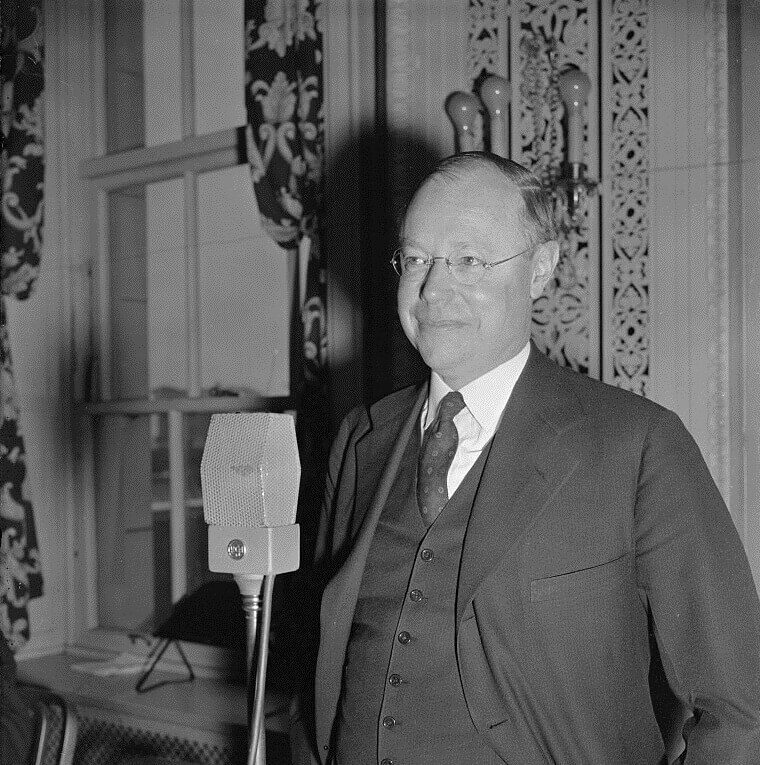The son of President William Howard Taft, Robert Taft was elected to the United States Senate in 1938, where he served until his death in 1953. Dubbed “Mr. Republican,” Taft represented a noninterventionist and domestically combative wing of the Republican Party that would suffer an eclipse in the years following his death.
Taft was an outspoken opponent of Franklin Roosevelt’s New Deal and an opponent of the expansion of federal power. However, he was by no means uncompromising, favoring, for example, federal housing subsidies. Among his best-known legislative achievements was the so-called Taft–Hartley Act of 1947, an antiunion measure that enjoyed popular support at a time when public opinion had begun to swing away from labor unions. Taft–Hartley did not repeal the provisions of the Wagner Act of 1935 that had coercively imposed collective bargaining; instead, it added further regulations of its own, outlawing the closed shop and authorizing the president to seek court injunctions against strikes he believed threatened the national interest.
Although in the end he generally voted for many of the U.S. government’s early Cold War measures, Taft and a number of other congressional conservatives remained skeptical of the precise extent of the Soviet threat and the utility and advisability of the global response that the Democrats and some internationalist Republicans were proposing. He condemned President Harry Truman’s decision not to seek a congressional declaration of war against Korea in 1950, relying instead on authority allegedly invested in him by the United Nations. Some polls found Americans in favor of Truman’s action by a margin of nine to one, but Taft was, as even his political enemies readily conceded, a man of principle.
Indeed, the intrepid Taft was in typical form when in 1946 he sharply criticized the Nuremberg trials of German war criminals. That the accused were evil and despicable Taft did not dispute, but he criticized the legal irregularities of the trials as mockeries of the rule of law and as bad omens for American constitutionalism at home. A young John Kennedy would devote a section of Profiles in Courage (1956) to Taft’s stand on the issue, noting in particular that the Ohio senator had addressed the matter even though it had not been an issue that campaign season.
Taft lost the 1952 Republican presidential nomination to Dwight Eisenhower, whose posture was more internationalist and in domestic policy less hostile toward the legacy of the New and Fair Deals than Taft’s own. Still, Taft campaigned for the general in the November elections.
Taft died on July 31, 1953, after a brief illness. His biographer William S. White, who was not sympathetic to the senator’s views, remarked in 1954 that “it could almost be said that with him died one kind of Republican Party.” Herbert Hoover, in a final tribute, called Taft “more nearly the irreplaceable man in American life than any we have seen in three generations.”
Further Reading
Russell Kirk and James McClellan, The Political Principles of Robert A. Taft
James T. Patterson, Mr. Republican: A Biography of Robert A. Taft
This entry was originally published in American Conservatism: An Encyclopedia, p. 834.














